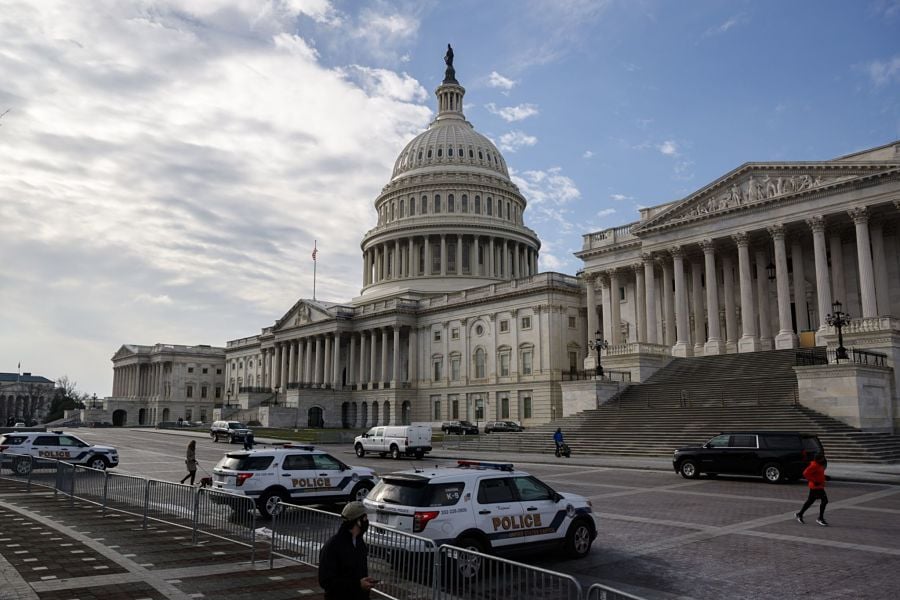

Bills introduced Thursday in the House and Senate would formally overturn the Department of Labor’s 2020 rule, Financial Factors in Selecting Plan Investments, and seek to make 401(k) sponsors more comfortable with ESG investing.
The Senate legislation, sponsored by Sen. Tina Smith, D-Minn., and Patty Murray, D-Wash., would “provide the legal certainty needed to reverse course and promote sustainable plans” and reestablish the tie-breaker rule for investments with environmental, social or governance criteria. That standard, which was the norm under the DOL for several administrations, gave fiduciaries clearer guidance to opt for ESG funds when the financial considerations were the same as those for other investment options.
The companion bill in the House is sponsored by Rep. Suzan DelBene, D-Wash.
Last year, the DOL tamped down on ESG investing in retirement plans by formalizing two different rules — one affecting financial considerations in plans and another related to proxy voting and shareholder rights affecting pensions plans. The financial factors rule did not expressly prohibit ESG in 401(k)s, though it was generally perceived as having a chilling effect.
However, in March the Biden administration announced that it would not enforce the Trump-era rules and would reexamine the need for them.
“Retirement security is all about planning for the future — and you can’t truly do that if you aren’t able to consider the environmental, social and governance factors that will shape the future,” Murray said in a statement.
The legislation introduced Thursday would amend the Employee Retirement Income Security Act to specifically allow plans to consider ESG factors “when they are expected to have an impact on investment outcomes, provided plans consider them in a prudent manner consistent with their fiduciary obligations,” Smith’s office wrote in an announcement.
Perhaps most significantly, the legislation would allow ESG factors to be considered in the selection of a plan’s qualified default investment option, which is usually a target-date fund. The DOL’s 2020 rule on financial considerations for investment selection all but prohibited such QDIAs.
Plan fiduciaries that choose ESG funds would “not be required to maintain any greater documentation, substantiation or other justification” for picking those investments, according to the Senate bill’s text.
By their nature, ESG considerations are financially material, Lisa Woll, CEO of US SIF, said in a statement supporting the legislation.
“Without this clarification, plan fiduciaries may remain reluctant to offer sustainable investment products in default options due to concerns about regulatory and litigation risks,” Woll said. “In fact, it is prudent for QDIA investments to consider long-term threats like climate change to protect the long-term interests of plan participants.”
The legislation also has support from Sifma, the American Retirement Association, Morningstar, the CFA Institute and Smart USA, a provider planning to launch a pooled employer plan this year.
“It is clear that ESG factors can have an economic impact. It is also possible to include ESG factors in the investment decision-making process in a way which is entirely consistent with a fiduciary’s responsibility to ensure appropriate investment returns,” Smart USA CEO Jodan Ledford and Catherine Reilly, its director of retirement solutions, wrote in a letter to Smith’s office.
“For example, the ESG investment funds which we use in the default investment option in our UK Master Trust have a very low tracking error (+/- 0.6%) at an additional cost of only 0.025% compared to the market capitalization-weighted index,” they wrote.
The use of sustainable investments grew 42% in the U.S. between 2019 and 2020, and now represents about $17.2 trillion, according to US SIF data cited by the legislators.
A recent study by Schroders found that most retirement plan participants like the idea of ESG investing and that many said they would likely increase their contributions if such funds were available.

Chasing productivity is one thing, but when you're cutting corners, missing details, and making mistakes, it's time to take a step back.

It is not clear how many employees will be affected, but none of the private partnership’s 20,000 financial advisors will see their jobs at risk.

The historic summer sitting saw a roughly two-thirds pass rate, with most CFP hopefuls falling in the under-40 age group.

"The greed and deception of this Ponzi scheme has resulted in the same way they have throughout history," said Daniel Brubaker, U.S. Postal Inspection Service inspector in charge.

Elsewhere, an advisor formerly with a Commonwealth affiliate firm is launching her own independent practice with an Osaic OSJ.
Stan Gregor, Chairman & CEO of Summit Financial Holdings, explores how RIAs can meet growing demand for family office-style services among mass affluent clients through tax-first planning, technology, and collaboration—positioning firms for long-term success
Chris Vizzi, Co-Founder & Partner of South Coast Investment Advisors, LLC, shares how 2025 estate tax changes—$13.99M per person—offer more than tax savings. Learn how to pass on purpose, values, and vision to unite generations and give wealth lasting meaning
